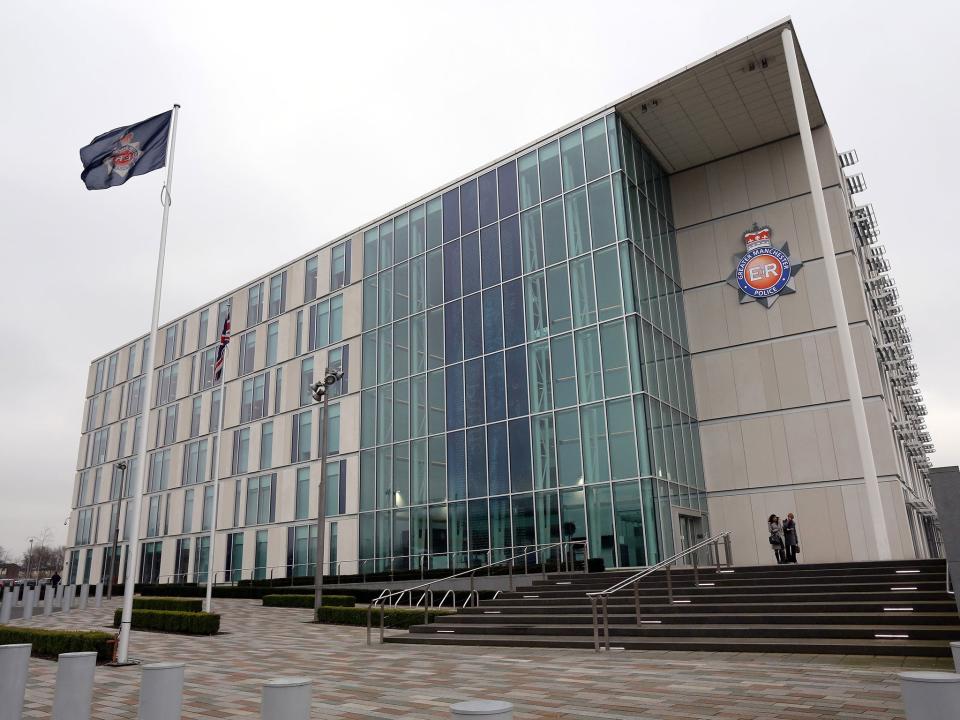Campaigners condemn 'unbelievable' prosecution of two mentally ill women charged after suicide attempt
Campaigners have condemned a police force’s decision to prosecute a pair of mentally ill women who were charged after causing traffic jams during suicide attempts.
Greater Manchester Police said charges can be appropriate if someone had made multiple attempts on their own lives at the same place, causing repeated obstruction.
It nonetheless said it would review the cases, one of which involved an 18-year-old woman whose lawyer said had been self-harming after losing her mother, grandmother and uncle.
As she was talked down to safety by a police officer, a motorway closed for about 20 minutes at the end of April.
Charged with causing a public nuisance, Manchester Magistrates Court heard that it was the sixth time the woman, whose lawyer said she had an “unstable personality disorder”, had threatened to kill herself in the same spot.
She was told she had caused ‘‘massive inconvenience’’, before she was handed a 12-month community order and ordered to pay £200 in costs and surcharges, The Guardian reported.
Another case involved a 27-year-old woman, who had disappeared from a psychiatric unit after having a row over her medication before walking out into traffic on the same motorway earlier this year, the Manchester Evening News reported.
Police charged her with the rarely-used offence of being “excluded traffic” on a motorway and she was convicted at Manchester magistrates court this week.
She was conditionally discharged for six months and ordered to pay £105 in costs and surcharges, which will be taken from her state benefits, before being taken back to the same psychiatric unit.
“You have to reread these stories to believe them," said Will Higham, director of policy at charity Rethink Mental Illness. "It is unbelievable. It leaves you shocked. It seems extraordinary that young people in such distress should be dealt with like this.
"The police have said that suicide threats on the motorway are an ever more common occurrence but there are better response systems and ways of diverting people to care."
He added: “They are particularly stark cases, but what lies underneath them, is the fact that it is a grim lottery - if you are very unwell you can either get the care you need or end up in the criminal justice system. These cases have hints of going back to far earlier laws. It is not the right response. This approach solves nothing. Imagine being in that level of distress and then being fined and berated and told off. It is extraordinary.
“Leaving aside that this is clearly wrong, no one can argue that this is an efficient use of police time. They need to come up with systems that help people that have mental health problems rather than putting them into the legal revolving door. Compassion and support have got to be at the heart of the responses to mental health problems. This should be a prompt to have a different system of support rather than more court cases”.
The worst possible solution for someone with mental health problems was to put them in the criminal justice system, he said, adding that he had been to prisons across the UK where he had witnessed troubling levels of distress among people with mental health problems who had been thrust into a system set up to “exacerbate their problems” rather than “care for them”.
The suicide rate among British women under the age of 45 is 4.9 per 100,000, according to the latest figures from the Office of National Statistics, considerably lower than 15.5 per 100,000 among men. But women remain more likely than men to attempt take their own lives.
Mr Higham's views were echoed by Alison Cobb, specialist policy advisor at mental health charity Mind.
“Police officers are often first on the scene when someone is experiencing a mental health crisis and have to deal with challenging situations quickly and calmly," she said. "It’s really important that anyone struggling with suicidal thoughts or actions is dealt with sensitively, compassionately and with dignity and respect, rather than being criminalised.”
A spokesperson for Greater Manchester Police said: “Supporting those most vulnerable is a priority for Greater Manchester Police. We work closely with our partners to ensure people with mental health conditions are assisted in the most appropriate way and pointed in the direction of services that can give them the help they need most. Sadly, it is an ever more regular occurrence for suicide threats on the motorway network, often involving the same individual on the same bridge on multiple occasions.
“Every incident is treated on a case by case basis and a prosecution is rarely a course of action for someone with a mental health condition. We speak to our colleagues in the mental health triage service and take their guidance before we decide on the most appropriate action. If a prosecution has been sought the likelihood is that there have been several incidents prior which we have attended and taken a different course of action.
“We will of course review these cases and ensure that the correct decision was made.”

 Yahoo News
Yahoo News 

